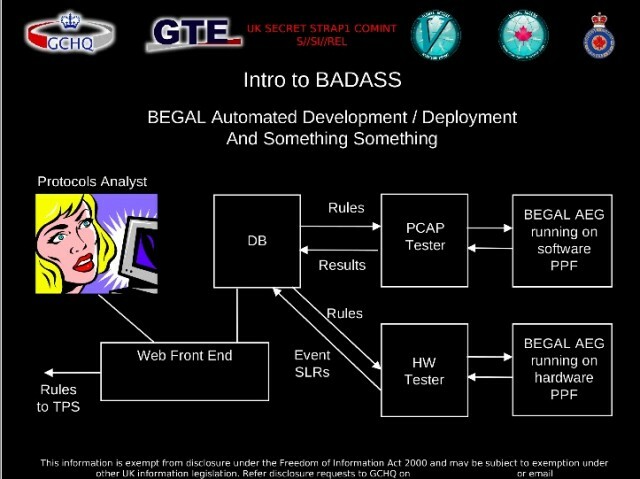GCHQ’s bulk surveillance of electronic communications has scooped up emails to and from some of the largest media organizations including the BBC, Reuters, the Guardian, the New York Times, Le Monde, the Sun, NBC and the Washington Post. This was done as part of a test exercise by the signals intelligence agency.
Over 70,000 emails were harvested in the space of less than 10 minutes on one day in November 2008 by one of GCHQ’s numerous taps on the fibre-optic cables that make up the backbone of the internet.
The swath of these intercepted communications, were sometimes simple mass-PR emails sent to dozens of journalists but also included correspondence between reporters and editors discussing stories. These transmissions were retained by GCHQ and were available to all cleared staff on the agency intranet. It is not known if any journalists were intentionally targeted.
New evidence revealed by Snowden, from the UK intelligence documents, shows that a GCHQ information security assessment listed “investigative journalists” as a threat in a hierarchy alongside terrorists or hackers.
Senior editors and lawyers in the UK have called for the urgent introduction of a freedom of expression law amid growing concern over over reaching laws and concerns over the police use of surveillance powers linked to the Regulation of Investigatory Powers Act 2000 (Ripa).
Over 100 editors, have signed a letter, coordinated by the Society of Editors and Press Gazette, to the UK prime minister, David Cameron, protesting at snooping on journalists’ communications.
Full Article
System exploited "leaky" mobile ads, cookies, analytic data to track users.
by Sean Gallagher - Jan 26 2015At least GCHQ has a sense of humor about how they spy on phone users.
As Ars has previously reported, documents passed to journalists by former National Security Agency contractor Edward Snowden have shown that the NSA and its British counterpart agency, the GCHQ, have exploited privacy "leaks" in mobile applications (including Rovio's Angry Birds) to track individuals of interest. A new document recently published by Der Spiegel provides further details on just how much the GCHQ was able to extract from mobile data to keep tabs on those it targeted for surveillance. The British agency used a program referred to as BADASS to suck up data emitted from Angry Birds and other apps, and the information was so granular, analysts could even track how well (or poorly) a person was doing playing. Full Article
Reply
Login to the community
No account yet? Create an account
Enter your username or e-mail address. We'll send you an e-mail with instructions to reset your password.






